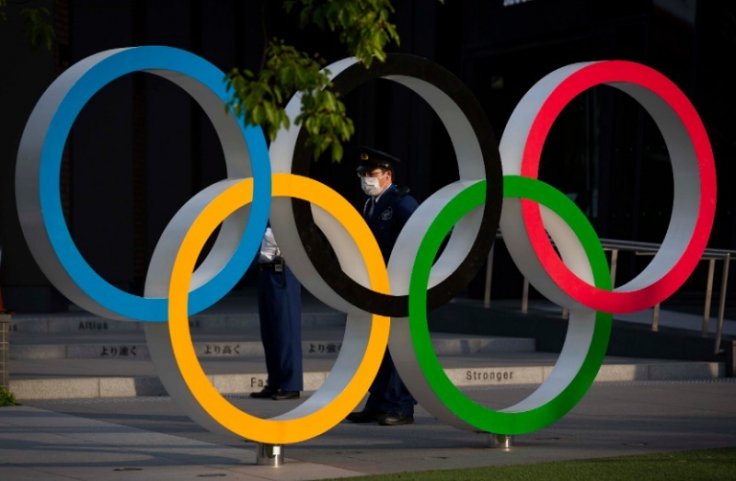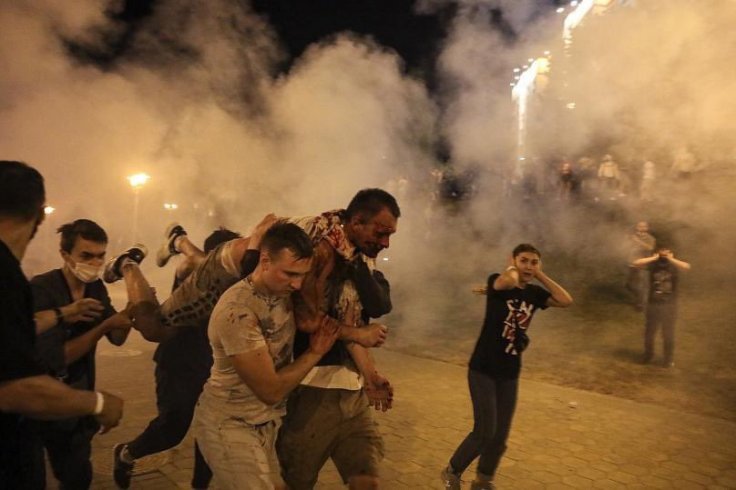A Belarusian sprinter said she was taken to the airport against her wishes on Sunday to board a flight back home after she complained about national coaches at the Tokyo Olympics, but planned to avoid getting on the plane.
Krystsina Tsimanouskaya, who was due to compete in the women's 200 metres on Monday, told Reuters she had sought the protection of Japanese police at Tokyo's Haneda airport so she would not have to board the flight.
'I will not Return to Belarus'

"I will not return to Belarus," she told Reuters in a message over Telegram.
The Belarusian Olympic Committee said in a statement that coaches had decided to withdraw Tsimanouskaya from the Games on doctors' advice about her "emotional, psychological state".
The Belarusian Olympic Committee did not immediately respond to a request for additional comment.
A Reuters photographer witnessed the athlete standing next to Japanese police.
"I think I am safe," Tsimanouskaya said. "I am with the police."
A police officer at Haneda airport said they were with a female Olympic athlete from Belarus at Terminal 3.

Plans Request Asylum in Germany or Austria
A source at the Belarusian Sport Solidarity Foundation, which supports athletes jailed or sidelined for their political views, said Tsimanouskaya planned to request asylum in Germany or Austria on Monday.
In a video published on Telegram by the Belarusian Sport Solidarity Foundation, Tsimanouskaya asked the International Olympic Committee to get involved in her case.
An IOC spokesperson said the governing body had seen media reports and was looking into it. The spokesperson said it had asked Belarus' Olympic committee for clarification.
Tsimanouskaya, 24, said coaching staff had come to her room on Sunday and told her to pack. She was taken to the airport before she could run in the 200 metres and 4x400 metres relay on Thursday.
She said she had been removed from the team due "to the fact that I spoke on my Instagram about the negligence of our coaches".
Tsimanouskaya had complained on Instagram that she was entered in the 4x400 m relay after some members of the team were found to be ineligible to compete at the Olympics because they had not undergone a sufficient amount of doping tests.
"Some of our girls did not fly here to compete in the 4x400 m relay because they didn't have enough doping tests," Tsimanouskaya told Reuters from the airport.
"And the coach added me to the relay without my knowledge. I spoke about this publicly. The head coach came over to me and said there had been an order from above to remove me."
Belarusian Diaspora in Japan
Tsimanouskaya added that she had reached out to members of the Belarusian diaspora in Japan to retrieve her at the airport.
Exiled Belarusian opposition leader Sviatlana Tsikhanouskaya urged the IOC to take up the athlete's case.
"Grateful to #IOC for the quick reaction to the situation with the Belarusian athlete Krystsina Tsymanouskaya. She has a right to international protection & to continue participation in the @Olympics," Tsikhanouskaya tweeted.
"It is also crucial to investigate Belarus' NOC violations of athletes' rights."
Belarusian President Alexander Lukashenko has kept a tight grip on Belarus, a former Soviet state, since 1994. Faced with mass street protests last year over what his opponents called rigged elections, he ordered a violent crackdown on protesters. Lukashenko denies the allegations of vote-rigging.
Unusually in a country where elite athletes often rely on government funding, some prominent Belarusian athletes joined the protests. Several were jailed, including Olympic basketball player Yelena Leuchanka and decathlete Andrei Krauchanka.
Others lost their state employment or were kicked off national teams for supporting the opposition.
During the Cold War, scores of sports people and cultural figures defected from the Soviet Union and its satellite states during overseas competitions or tours. But the freedom of travel that came with the fall of the Soviet Union in 1991 saw the need for such dramatic acts dwindle.









